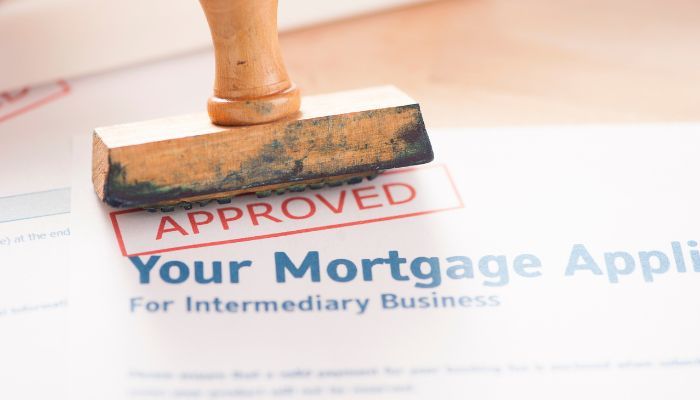
Common Mortgage Mistakes To Avoid
Jump To
The thought of buying a home can be exciting and daunting at the same time. After all, it is one of the biggest investments you will ever make in your life. But there are plenty of common mortgage mistakes to watch out for that could cost you dearly in the long run. I’m here to help you avoid these costly errors so you can rest assured knowing that your dream home purchase is right on track.
Picture this: You have finally saved up enough money for a down payment, but then discover that your credit score isn’t quite where it needs to be to secure a favorable mortgage rate. Or maybe you go ahead with a loan without factoring in all the associated costs, leaving yourself financially strained months after closing on your new property. These are just some of the common mortgage mistakes people make when buying their homes – and they are easily preventable!
In this article, I will walk you through some of the most frequent missteps that people tend to make when taking out mortgages, so that you don’t have to experience them firsthand. I’ll also provide some useful tips on how best to navigate these tricky waters so that you can find the perfect loan option for your situation without any hiccups along the way. With this guide in hand, you can confidently head into the home-buying process knowing exactly what pitfalls lie ahead – and how best to avoid them.
Not Shopping Around For The Best Rate
When it comes to mortgages, you definitely want to avoid making costly mistakes. To that end, one of the most important common mortgage mistakes to avoid is not shopping around for the best rate. In other words, don’t settle for the first lender that you come across – take your time and see what else is out there!
To begin with, it’s critical to know that lenders’ rates can vary significantly and that you have options when searching for a mortgage. For example, in addition to banks and credit unions, there are online lenders, brokers and more who may offer competitive rates. And of course, each lender has different qualifications for loan approval so it pays off to explore all your options.
Consequently, researching various lenders can ultimately save you thousands of dollars on interest over the life of your loan – and even more if you plan on staying in the home for many years. Plus, doing this legwork will also give you peace of mind since you’ll be sure about getting the best deal possible for your situation. Ultimately, taking the time to compare rates is an essential part of smart mortgage shopping.
Having said that, another common mistake people make when it comes to mortgage loans is not understanding the terms of the loan they are signing up for.
Not Understanding The Terms Of The Loan
Making a mistake when getting a mortgage can feel like you’re walking an emotional tightrope. It’s important to be aware of the common pitfalls so you don’t fall off. The second one to keep in mind is not understanding the terms of the loan.
Before signing on the dotted line, it’s essential to understand exactly what you are agreeing to. You should get clarification on things such as repayment periods and interest rates, as well as any fees and penalties that may apply if you miss payment deadlines or make early repayments. Not being aware of these details could lead to bigger problems down the line.
If you’re not sure about anything in your contract, make sure to ask questions before proceeding. A good mortgage broker will be able to provide advice and answer any queries you may have. Taking the time to ensure that you know all of your options upfront will help prevent any issues from arising during your loan term. By doing this, you can move forward with confidence into the next step: calculating the total cost of your mortgage.
Not Calculating The Total Cost Of The Mortgage
I’m sure you’ve heard the saying, “you get what you pay for.” When it comes to mortgages, that couldn’t be more true. It’s important to not only understand the terms of your loan but also calculate the total cost of the mortgage.
If you’re just looking at the interest rate, then you’re missing out on important details like closing costs, taxes, insurance and other fees associated with your mortgage. You should never sign a loan agreement without understanding exactly how much you’ll have to pay in total.
It’s easy to get confused when taking out a mortgage and make mistakes that can cost you thousands in the long run. Make sure to stay informed and ask questions if something doesn’t seem right – it could save you from paying unnecessary fees down the line. Now let’s look at another mistake people often make: not building a healthy credit score.
Not Building A Healthy Credit Score
I know it’s a bit of a chore, but building a healthy credit score is an important part of the mortgage process. This score will determine whether or not you get approved for a loan and if you’re able to secure good terms and interest rates.
Having bad credit can make it difficult to get approved for a mortgage or any other type of loan. You may also be stuck with higher interest rates, meaning more money out of your pocket every month. That’s why it’s important to take the time to check your credit regularly and make sure that all information is accurate and up-to-date.
If you’re looking to increase your credit score, there are several steps you can take: pay down existing debts, keep balances low on your credit cards, avoid opening too many new accounts at once, and make sure all payments are made on time. By taking these steps, you can improve your chances of getting approved for the loan you need.
TIP: Use online tools like Credit Karma to monitor your credit score and see where improvements can be made! This way, you’ll be in a better position when applying for a mortgage or any other type of loan. Making sure that you have done everything possible to build up your credit score is essential for getting the best terms on a mortgage – so don’t overlook this step!
Not Reading The Small Print
It’s a theory that we all dread to consider but it’s worth mentioning: reading the small print could be the difference between a successful mortgage agreement and a costly mistake. It’s wise to assume that, if you’ve signed something without reading all the details, you are potentially setting yourself up for failure. But is this really true?
The answer is yes. Even taking five minutes to read through the document carefully can save you from making an expensive mistake down the line. For example, some lenders may offer low interest rates but include hidden fees or penalties that can add up quickly over time. Furthermore, some contracts may contain clauses that allow for interest rate increases after a certain period of time – something you should definitely look out for.
Being aware of these potential pitfalls will help put your mind at ease before signing any legal documents and ensure that you understand what you are committing to before agreeing to it. That being said, it’s also important to take into account all the associated costs when taking out a mortgage – such as taxes, insurance and closing costs – which can affect the overall cost of your loan significantly.
Not Considering All The Fees Involved
When it comes to mortgages, the old adage ‘the devil is in the details’ really rings true. When it comes to not considering all the fees involved in a mortgage, ignorance is not bliss. Before signing on the dotted line, you need to make sure that you are aware of all possible fees and costs associated with your mortgage. To help you out, here’s a quick-hit list of things to watch out for:
- Application fees – These types of fees can vary from lender to lender and typically include both an upfront fee and an annual fee.
- Processing fees – This will cover any administrative costs associated with processing your loan application and can often be built into the interest rate.
- Origination fees – This covers any expenses related to setting up the loan such as broker or lender commission, title insurance, appraisal costs, etc.
- Prepayment penalties – Some lenders may charge a penalty if you pay off your loan early so make sure to ask about this when shopping around for a loan.
- Late payment fees – If you miss payments on your mortgage then these fees can add up quickly so it’s important to have a plan for making payments on time each month.
No matter which type of mortgage you decide on, make sure that you understand all of the potential costs involved and budget accordingly before committing yourself or else risk facing unexpected surprises down the road! With that in mind, let us move on now to discussing another common mistake: not budgeting for future expenses…
Not Budgeting For Future Expenses
One of the most important steps in the mortgage process is making sure you budget for future expenses. When it comes to taking out a loan, it’s not just about what you can afford now – but also what you’ll be able to afford in the future. Here are some key points to consider when budgeting for future expenses:
- Know your monthly income and expenses: Take the time to go through your income and expenses carefully. This will give you an idea of how much money you have available each month for your mortgage payments.
- Understand how interest rates can affect your budget: Interest rates can change significantly over time, so it’s important to factor this into your budget. Make sure that any changes in interest rates won’t drastically reduce the amount of money that you have available for your mortgage payments.
- Consider potential changes in your life: Life is unpredictable, so think about possible changes that could occur over time such as getting married, having children, or changing jobs. These all could have an effect on your ability to make payments on your loan.
It’s important to make sure that whatever loan amount you decide on is something that you’ll be able to afford over the entire length of the loan. Not planning for future expenses could leave you struggling financially down the line. That’s why it’s best to plan ahead and make sure that whatever loan amount you choose is something that will work with both present and future circumstances.
Having a good handle on budgeting for future expenses can help ensure that taking out a loan is something that works with both your current finances and any potential changes down the line. This way, you won’t end up stuck with an unmanageable debt load later on!
Not Putting Enough Money Down
One of the biggest blunders a mortgage applicant can make is not having enough money to put down. It’s like playing a high stakes game of poker with an empty hand – you may think you have the upper hand, but it’s highly unlikely to pay off in your favor.
Not putting enough money down on a mortgage loan is one of the most common mistakes aspiring homeowners make, and it can cost them dearly in the long run. Without a significant down payment, borrowers are more likely to be approved for higher interest rates, longer loan terms, and larger overall payments. This means that not only will they be paying more over time, but they could also be burdened with more debt than they originally anticipated.
In addition to increasing their overall expenses, failing to put enough money down could also lead to other issues such as being unable to access certain homebuyer incentives or programs. The takeaway here is simple: when it comes to mortgages, having a bigger initial investment can really pay off in the end – both financially and otherwise.
Not Being Prepared To Provide Documentation
It is estimated that up to 85% of mortgage applicants are not fully prepared when it comes to providing the documentation needed for the application. This can be a costly mistake as lenders will often require proof of income, assets and credit history before they will approve your loan. Failing to provide these documents or having incomplete paperwork can delay your application or even cause it to be rejected altogether.
Being prepared with all the necessary documents is essential to make sure everything runs smoothly and quickly. This includes things like bank statements, pay stubs, tax returns, W-2 forms and any other relevant paperwork. It’s also important to make sure that everything is accurate and up-to-date so lenders don’t have any questions about what you’ve provided.
TIP: A great way to stay organized and on top of the paperwork process is by creating a checklist of all the documents you need for your loan application. Not only will this help you keep track of what needs to be done, but it can also save you time and energy when it comes time to submit your application.
By taking the time upfront to ensure you have all your documents ready for submission, you’ll be in a better position when applying for a mortgage. It’s also important to understand the legal requirements associated with the loan process in order to avoid any potential problems down the line.
Not Knowing The Legal Requirements
It goes without saying that getting a mortgage can be a tricky business. You need to make sure you don’t fall into any traps along the way, so it pays to do your homework and be aware of the legal requirements. Flying blind is never a good idea when it comes to something as crucial as your financial wellbeing.
To get ahead of the game, consider learning about all the ins and outs of obtaining a mortgage. This will help you anticipate any potential pitfalls and keep yourself in check. It’s like they say: forewarned is forearmed! Having an understanding of all the associated legal requirements will ensure that everything runs as smoothly as possible during your mortgage application process.
Ignorance is not bliss here; you can’t afford to leave anything to chance when dealing with such an important decision for your future. Doing some research beforehand will give you peace of mind that you’re making a sound investment and help avoid costly mistakes down the line. So make sure you know what’s expected before diving in head first!
Conclusion
It’s easy to get overwhelmed when shopping for a mortgage. It’s important to take your time and understand all of the terms and conditions before signing on the dotted line. By avoiding common mortgage mistakes, such as not shopping around for the best rate, neglecting to budget for future expenses, or not understanding the legal requirements, you can ensure that you make an informed decision that will benefit you in the long run. You can also use resources such as Home Mortgage Guides to help you in your research
My advice is to do your research and ask questions whenever possible. Seek out trusted professionals who can help guide you through the process. Don’t be afraid to take a step back and reevaluate if something doesn’t feel right – it could save you from making an expensive mistake down the road.
Shopping for a mortgage is no small task, but with perseverance and a bit of savvy, you can make sure that you end up with an offer that suits your needs and lifestyle. Alluding to my earlier point about taking things slow: just like any other major purchase – whether it’s a car or a home – it pays off in spades when we take our time and do our due diligence.
FAQs
What Is The Best Way To Shop Around For The Best Mortgage Rate?
Shopping around for a mortgage rate can seem like a daunting task, and can leave you feeling overwhelmed and confused. But fear not, I’m here to make this process easier for you! After all, what’s the point of having a mortgage if you end up paying too much for it?
Satire: Don’t be like those poor souls who simply let the bank decide their fate by signing on the dotted line without question. That’s just crazy talk!
But seriously, shopping around for the best rate is essential – and there are several ways you can do it. First off, check the interest rates of different banks or lenders. You’ll want to compare various products and features that come with each loan package to find one that fits your needs best. Additionally, ask your current lender if they have any special offers or discounts available. They may even offer a lower rate than other lenders in order to keep you as a customer. Finally, consider seeking advice from an independent mortgage broker who can shop around on your behalf and provide advice tailored to your individual situation.
No matter how you go about it, make sure to take your time when deciding which type of loan is right for you. Research all of your options thoroughly so that you don’t end up with a deal that costs more than it should – nobody wants that!
What Are The Long-Term Consequences Of Not Understanding The Terms Of The Loan?
When it comes to mortgages, it’s essential to understand the terms of your loan. According to recent studies, over 50% of homeowners fail to research their mortgage options before signing on the dotted line. That’s a huge mistake! Not only can this lead to paying more interest over time, but it can also mean missing out on potential savings.
Let’s take a closer look at the long-term consequences of not understanding the terms of your loan:
- You may end up with higher interest rates than you could have otherwise secured.
- You may be locked into a variable rate that you cannot escape without paying expensive fees.
- You may be unable to refinance for years due to the unique conditions in your loan agreement.
- You could be stuck with an adjustable rate when fixed rates are much lower.
- You may be unaware of any prepayment penalties or restrictions on refinancing till after you’ve signed the contract.
These issues can cost you thousands in extra payments over time and potentially leave you in financial distress if your circumstances change unexpectedly. It is therefore important that you take the time to understand all aspects of your mortgage agreement before committing yourself and ensure that you get the best deal for your individual situation. After all, no two mortgages are alike!
How Much Should I Budget For Future Mortgage Expenses?
It’s no secret that mortgages can be a huge financial commitment. With such a significant chunk of cash at stake, it’s essential to know how much to budget for future mortgage expenses. If you don’t, it can feel like the rug has been pulled out from under you! It’s almost impossible to overstate just how important it is for any potential homeowner to understand their long-term mortgage obligations before signing on the dotted line.
The good news is that there are plenty of resources available to help you get your finances in order and plan ahead for any mortgage-related expenses — from researching loan rates and terms, to estimating taxes and insurance costs associated with your home purchase. One good starting point is to talk with a financial advisor or look up online calculators that can help you get an idea of what your future mortgage expenses might be.
When budgeting for your mortgage, remember that these costs will likely increase over time due to factors like inflation and interest rate fluctuations. So it pays — literally — to plan ahead so you aren’t caught off guard later on! Don’t let the fear of the unknown take away from your dream of homeownership; do your research now and prepare yourself with a realistic budget so you can make smart financial decisions down the road.
How Can I Build A Healthy Credit Score?
Do you want to build a healthy credit score but don’t know where to start? You’re not alone! A good credit score is essential for obtaining a mortgage and making sure you have a strong financial foundation. Fortunately, there are some simple steps you can take to help improve your credit score:
- Pay bills on time: This means paying all your bills, such as rent, utilities, and credit cards, on or before the due date. Doing this will show potential lenders that you are reliable and trustworthy when it comes to managing finances.
- Check your credit report regularly: It’s important to keep track of your credit report so that you can ensure there are no errors or fraudulent activity. Make sure to check at least once per year for accuracy.
- Keep balances low: Credit utilization is an important part of maintaining good credit. Aim to keep your total balance below 30% of your available limit across all accounts.
- Don’t open too many new accounts in a short period of time: Applying for too many new lines of credit within a short period of time can lower your score significantly.
By following these tips, you can help ensure that your score is healthy and maximize the chances of being approved for a mortgage loan. However, it’s also important to remember that building and maintaining good credit takes time — usually at least six months — so be patient and stay consistent with these practices!
Are There Any Additional Fees That I Should Be Aware Of?
When it comes to mortgages, there are some common mistakes that people make. One of the most important things to consider is whether or not there are any additional fees that may be associated with your mortgage. It’s a good idea to check for these fees so you don’t get stuck with unexpected costs down the line.
These fees can come in many forms, from administration and appraisal fees to closing costs and more. Some lenders will even charge a fee for early payment or prepayment of the loan, so it’s important to read through all of the paperwork carefully and make sure you understand what you’re agreeing to.
By familiarizing yourself with all the different types of fees associated with mortgages, you’ll be better prepared when it comes time to making your decision. Knowing what they are can help ensure that you avoid any costly surprises further down the line. Taking the time to learn more about these potential charges can really pay off in the long run!
Get A Pre-Approval Today!

Home Mortgage Calculator


Leave a Reply